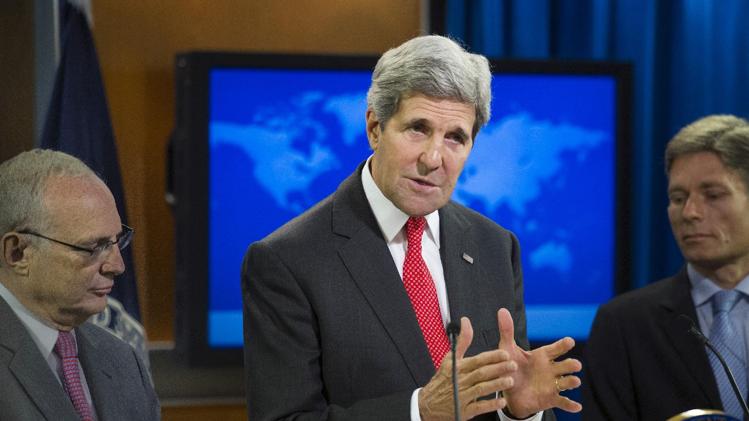
(TibetanReview.net, Jul30, 2014) – While there was a growing interest in Tibetan Buddhism among ordinary Chinese people, repression of religious freedom was severe across Tibet in 2013. Also, ethnic Tibetans were subjected to all manners of discrimination in mainland China, said the United States in its latest annual global religious freedom report Jul 28.
The 2013 International Religious Freedom Report, presented by Secretary of State John Kerry to the US Congress, said there was poor respect for and protection of religious freedom in Tibet. It added that official interference in the practice of Tibetan Buddhist religious traditions, especially in monasteries and nunneries, continued to generate profound grievances.
While releasing the report Kerry said the Chinese authorities arrest Tibetan Buddhists simply for possessing a photograph of the Dalai Lama, Tibet’s exiled spiritual leader, reviled by the Chinese leadership due to his immense popularity among the Tibetan people.
The report itself said there were reports of detention, sentencing (including two death sentences, one with a two-year reprieve), three deaths attributed to police, and other government-initiated violence related to religious issues. It cited reports by journalists and non-governmental organizations as saying 26 Tibetans, including monks, nuns, and laypersons, self-immolated across Tibet in protest against Chinese rule and policies during the year.
The report suggested that official repression of Tibetans as a religious group had percolated to the Chinese society where Tibetans face discrimination in employment, while engaging in business, or when traveling. “Tibetans, particularly those who wore traditional and religious attire, regularly reported incidents in which they were denied hotel rooms, avoided by taxis, and/or discriminated against in employment opportunities or business transactions,” the report further said.
The report also said China severely restricted access to Tibet and communication with the Tibetan people as a way to control information about the true situation. It added that the ability of US diplomatic personnel to speak openly with Tibetan residents and members of the monastic community was severely restricted during their visits to Tibet.
The annual report, mandated by Congress, helps inform US government policy and foreign assistance. It also serves as a reference for other governments, international institutions, non-governmental organizations, legal professionals, scholars, interested citizens, and journalists.


